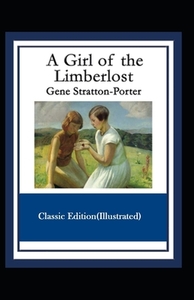Take a photo of a barcode or cover
emotional
lighthearted
reflective
slow-paced
A little saccharine and slow for me, but fine for a classic teen romance. "Good and Beautiful"
5 ★ - (adored, absolute favorite)
RTC
CWs, or things that caught my attention: jealousy, grief, spying, child abuse?, poverty
RTC
CWs, or things that caught my attention: jealousy, grief, spying, child abuse?, poverty
An old favorite, similar in some ways to Anne of Green Gables (neglected youth, smart and hardworking main character, a thread of romance), but with a heavy foundation in nature and natural beauty.
Reading other reviews, I agree that many of the values expressed in this story are old-fashioned, but I've never found them to be heavy-handed. For example, the idea that a woman exists only to serve her husband is certainly expressed in the conflict between Edith and Elnora. But the story balances this out by making Elnora and her mother almost completely self-sufficient, Elnora is certainly one of the most intelligent and hardworking of her class, and while she never makes it to college I could see her continue her work with the Bird Woman to spread love and understanding of nature before it's gone. And while the idea of a subservient wife is praised, I found that the stronger theme was simply mutual sacrifice. Philip struggles with his relationship with Edith - not solely because she refuses to be a proper woman, but more so because she is completely selfish and lacks empathy. A similar relationship exists between Kate Comstock and her daughter: Kate wraps herself in her own grief, and generally fails to empathize with Elnora. In short, I found less in this story about the subservient nature of women and more about relationship dynamics in general, although historical attitudes toward women are certainly present.
Another criticism is the callousness with which the forest is treated: Elnora makes liberal use of the natural resources around her to make money, and it's strongly hinted that her mother will eventually clear some of her forest land and drill for oil. And while this is certainly all part of the story, again it's balanced by the idea that through harvesting some of the natural bounty and making books and images of the flora and fauna, knowledge of the natural world can be brought to even those who live outside of its boundaries. Both of these themes - women's place in the word and the human race's relationship with nature - are highly relevant today, and are complex, and it's of interest to see how these relationships have changed over the last 100 years.
Other themes of note: grief, conformity, family, community.
Reading other reviews, I agree that many of the values expressed in this story are old-fashioned, but I've never found them to be heavy-handed. For example, the idea that a woman exists only to serve her husband is certainly expressed in the conflict between Edith and Elnora. But the story balances this out by making Elnora and her mother almost completely self-sufficient, Elnora is certainly one of the most intelligent and hardworking of her class, and while she never makes it to college I could see her continue her work with the Bird Woman to spread love and understanding of nature before it's gone. And while the idea of a subservient wife is praised, I found that the stronger theme was simply mutual sacrifice. Philip struggles with his relationship with Edith - not solely because she refuses to be a proper woman, but more so because she is completely selfish and lacks empathy. A similar relationship exists between Kate Comstock and her daughter: Kate wraps herself in her own grief, and generally fails to empathize with Elnora. In short, I found less in this story about the subservient nature of women and more about relationship dynamics in general, although historical attitudes toward women are certainly present.
Another criticism is the callousness with which the forest is treated: Elnora makes liberal use of the natural resources around her to make money, and it's strongly hinted that her mother will eventually clear some of her forest land and drill for oil. And while this is certainly all part of the story, again it's balanced by the idea that through harvesting some of the natural bounty and making books and images of the flora and fauna, knowledge of the natural world can be brought to even those who live outside of its boundaries. Both of these themes - women's place in the word and the human race's relationship with nature - are highly relevant today, and are complex, and it's of interest to see how these relationships have changed over the last 100 years.
Other themes of note: grief, conformity, family, community.
An interesting story, if a little unbalanced and wandering at times. I'd probably enjoy it more if I loved moths the way the main character does.
The more I read this, the more I liked it, but it still was hard to follow the archaic ways of speaking sometimes. There were a few tangents that I never could quite connect with the rest of the story. It is amazing how many words are used in totally different contexts today! I liked Elnora until the very end. She always behaved well and maturely, but she seemed more petulant at the end and wasn't nearly as endearing, I just wanted to be done with her! Overall, it was a good read.
medium-paced
Plot or Character Driven:
Plot
Strong character development:
No
Loveable characters:
No
Diverse cast of characters:
No
Flaws of characters a main focus:
Yes
slow-paced
Plot or Character Driven:
A mix
Diverse cast of characters:
No
Flaws of characters a main focus:
No
emotional
hopeful
informative
inspiring
medium-paced
Plot or Character Driven:
A mix
Strong character development:
Yes
Loveable characters:
Yes
Diverse cast of characters:
No
Flaws of characters a main focus:
Yes
adventurous
emotional
hopeful
inspiring
lighthearted
reflective
sad






